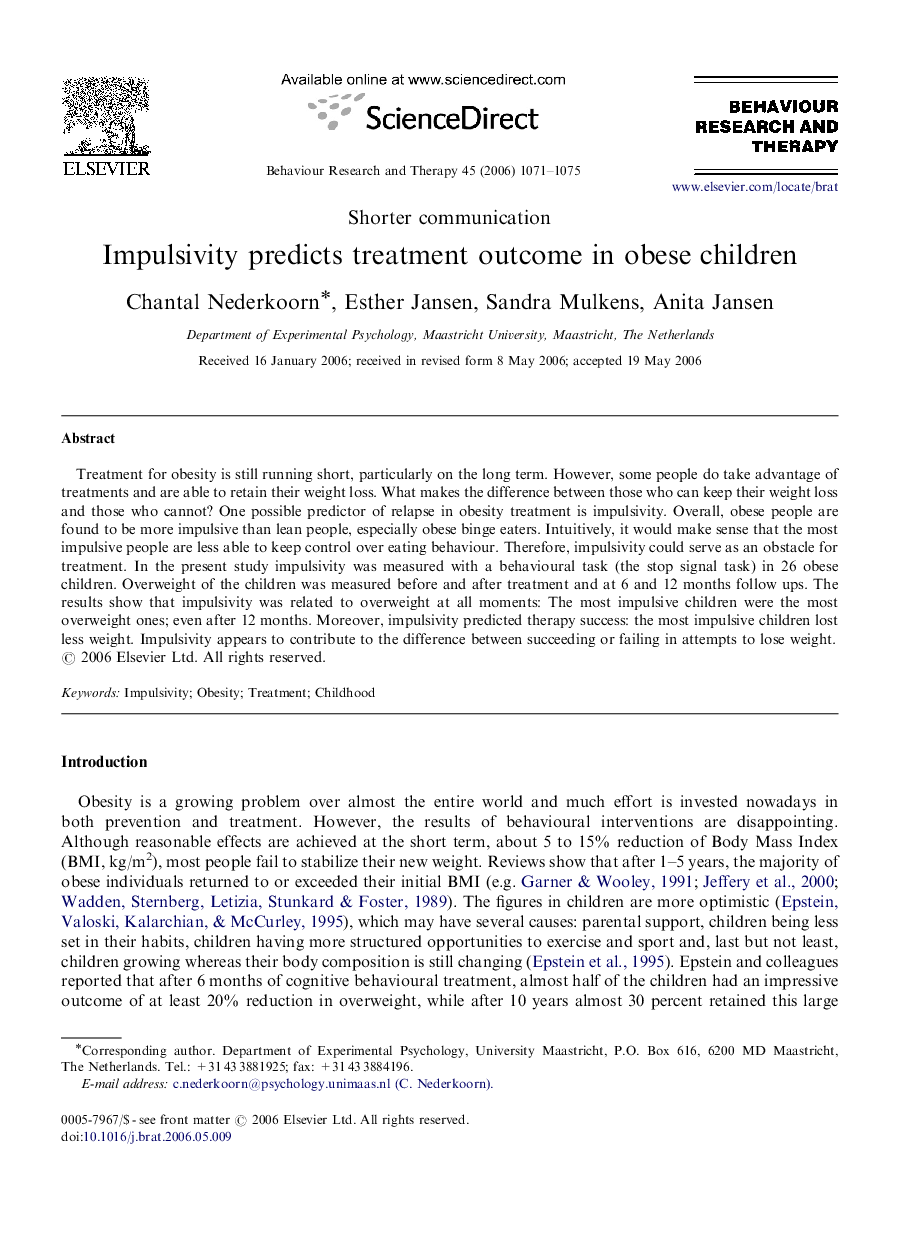| Article ID | Journal | Published Year | Pages | File Type |
|---|---|---|---|---|
| 902345 | Behaviour Research and Therapy | 2007 | 5 Pages |
Treatment for obesity is still running short, particularly on the long term. However, some people do take advantage of treatments and are able to retain their weight loss. What makes the difference between those who can keep their weight loss and those who cannot? One possible predictor of relapse in obesity treatment is impulsivity. Overall, obese people are found to be more impulsive than lean people, especially obese binge eaters. Intuitively, it would make sense that the most impulsive people are less able to keep control over eating behaviour. Therefore, impulsivity could serve as an obstacle for treatment. In the present study impulsivity was measured with a behavioural task (the stop signal task) in 26 obese children. Overweight of the children was measured before and after treatment and at 6 and 12 months follow ups. The results show that impulsivity was related to overweight at all moments: The most impulsive children were the most overweight ones; even after 12 months. Moreover, impulsivity predicted therapy success: the most impulsive children lost less weight. Impulsivity appears to contribute to the difference between succeeding or failing in attempts to lose weight.
